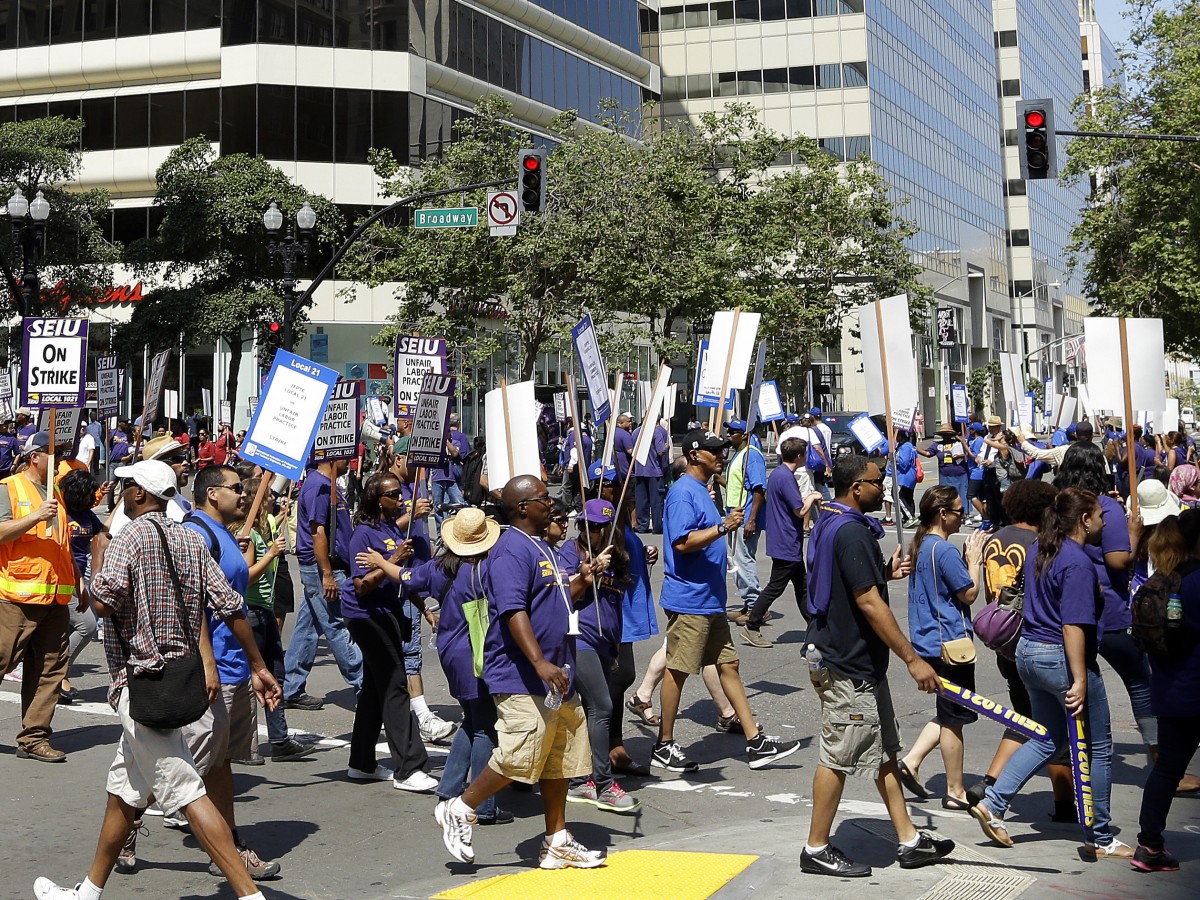
UPDATE: On Thursday, unions representing BART employees announced the possibility of a strike starting Monday morning, if progress isn’t made in contract negotiations with BART management. Union leaders have also asked Gov. Jerry Brown not to impose a 60-day cooling-off period, saying that more time won’t make a difference if the BART management doesn’t seriously address worker’s concerns.
In a statement, Josie Mooney, chief negotiator for Service Employees International Union Local 1021, said “We remain continued to working through (Friday) and the weekend to reach a fair and quick resolution. However, BART and its unions have yet to meet on economic and critical safety issues.”
Mooney warned that if the negotiations fail, the unions may issue a 48-hour notice on Friday to give BART-commuters ample notice that they may need to find an alternative way to work on Monday.
The original article, “California Governor Orders Investigation Into BART Negotiations,” published Aug. 6, 2013, appears below:
Less than two hours before the San Francisco Bay Area Rapid Transit (BART) was to shut down for the second time this year as workers went on strike, California Gov. Jerry Brown intervened and ordered a seven-day board of inquiry investigation into the contract dispute between BART and the unions representing BART employees.
A three-member board comprised of Jacob Appelsmith, senior advisor to Brown and director of the California Department of Alcoholic Beverage Control since 2011, Robert Balgenorth, chairman of the California Construction Industry Labor Management Cooperation Trust and the former head of the State Building and Construction Trades Council of California, and Micki Callahan, director of human resources for the city and county of San Francisco, have now been tasked with deciphering where the two sides are in disagreement and where compromises could be made.
During the next seven days, the unions are not allowed to walk off the job, and BART officials cannot lock them out. In a statement, Brown said that he appointed the board “because the strike will significantly disrupt public transportation services and will endanger the public’s health, safety, and welfare.”
For at least the next seven days, the last minute intervention will save the approximately 400,000 commuters who use BART. The fifth-largest rail system in the U.S., the BART strike that occurred earlier this year in July put another 60,000 vehicles on already-clogged roads in the San Francisco Bay area.
In a press release, BART says the organization’s “Board President Tom Radulovich sent a letter to the Governor laying out BART’s plan to focus all of its efforts on reaching an agreement.” Radulovich said that a cooling off period would “allow us to continue negotiating while assuring the public that it will have transit service tomorrow and for another 60 days as we continue to bargain. The formal impartial fact-finding that accompanies the cooling-off period will help clarify the points of difference between the proposals.”
Radulovich said the appeal to the governor “was the only option to keep the trains rolling,” and said that despite the rumors, BART management was not playing hard ball during contract negotiations with the unions.
He applauded the governor’s decision to step in and said he hoped that the board would find that the BART officials offer some of the best wages and benefits in the transit industry.
Union officials, on the other hand, were less enthusiastic about the three-member board investigation that will occur throughout the next week. Antonette Bryant is the president of Amalgamated Transit Union Local 1555, which represents train operators and station agents. Said Bryant, “We’re extraordinarily unhappy this had to happen,” when asked about the board’s investigation.
However, Roxanne Sanchez, president of Service Employees International Union Local 1021, released a statement saying she hopes the board discovers that BART negotiators have been dragging their feet during the negotiation process.
“Our hope is that the Governor’s Board can show the public how BART has manipulated the process and continued to bargain in bad faith.”
As Mint Press News previously reported, the strike and current dispute are the product of a failure between the unions and BART officials to reach an agreement regarding the workers’ contract.
Union representatives say employees have gone five years without a pay raise and agreed four years ago to cut $100 million in salaries and benefits to help the system recover from the economic downturn. But now that demand for public transportation has increased and BART has a financial surplus, union officials say workers should be given some of that extra money.
The unions — representing about 2,400 train operators, station agents, mechanics, maintenance workers and professional staff — have asked for a 5 percent raise each year for the next three years. In addition, union negotiators asked for larger contributions to employees’ pensions and health insurance premiums.
According to the San Francisco Chronicle, BART employees don’t contribute to their state pension plans and pay around $92 a month for health insurance. The average base salary for a train operator ranges from about $60,000 to $71,000, and typical employees earn about $11,000 in overtime annually, according to the Chronicle.
In response to the union’s request, BART officials proposed a 2 percent annual raise for employees and said they would reduce the minimum amount employees must contribute to their pensions and health insurance premiums. But the union rejected the offer, saying it would actually result in employees losing money.
“On the surface it looks like a raise,” Bryant said. “But it’s not really a raise. It certainly leaves us in the red — 3 to 4 percent lower than our wages now.”
BART officials maintain that while the budget currently has a surplus, that extra money needs to be used to modernize and improve the rail system and rail cars. It is also reportedly needed to build a new train maintenance facility and a new train control system.


